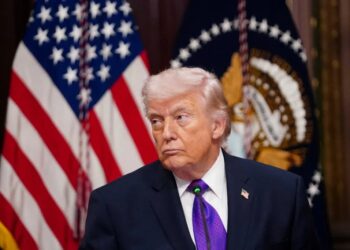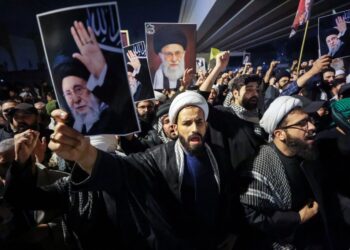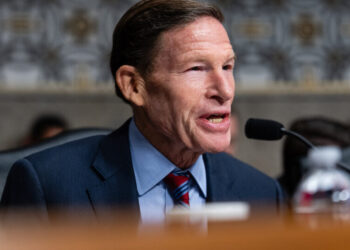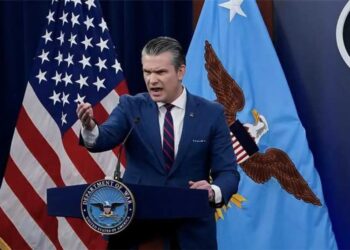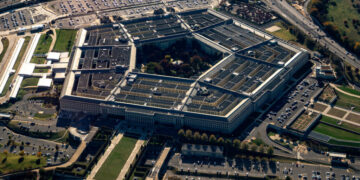Philip Glass’ ‘Akhnaten’ is back at L.A. Opera, this time with a magnificent John Holiday
By my count, Philip Glass has written 28 operas, the same number as Verdi. The count is iffy because Glass...
China lowers growth forecast, boosts military, citing ‘grave’ environment
China on Thursday lowered its economic growth target and raised its annual defense budget by 7 percent, touting what it...
I’m a British mom in the US who only connected with other Brits. Now, in my 50s, my closest friends are American.
Madeleine Collins grew up in London but has been raising her two daughters in San Diego. Provided by Madeleine CollinsMadeleine...
Superfood Fuels Mating Frenzy for a Critically Endangered Parrot
Not all superfoods are indeed super, but one just might help save a critically endangered parrot species that can be...
‘Who asked for that?’ MAGA fans mock Trump after curious edit to Truth Social rant
Fans of President Donald Trump’sMAGA movement mocked the president on Thursday after he edited one of his latest Truth Social...
Two Schools in Iran Damaged in U.S.-Israeli Bombing
Two more schools in Iran appeared to have been damaged on Thursday during the bombing campaign being conducted by the...
The dangerous rise of decapitation warfare
President Donald Trump said about the airstrike that killed Iranian Supreme Leader Ali Khamenei a week ago: “I got him...
Satellite photos show California’s sudden snowpack meltdown: Now you see it, now you don’t
Just weeks after major storms brought snow to the Sierra Nevada mountains, a winter heat wave has all but eliminated...
Trump removes DHS Secretary Kristi Noem after controversial tenure
President Donald Trump said Thursday he is replacing Homeland Security Secretary Kristi L. Noem, a move that came amid mounting...
Trump’s Beauty Queen Under Investigation by Florida Bar
The president’s former lawyer is under a microscope for her on-the-job behavior. Former federal prosecutor and beauty pageant contestant Lindsey...




